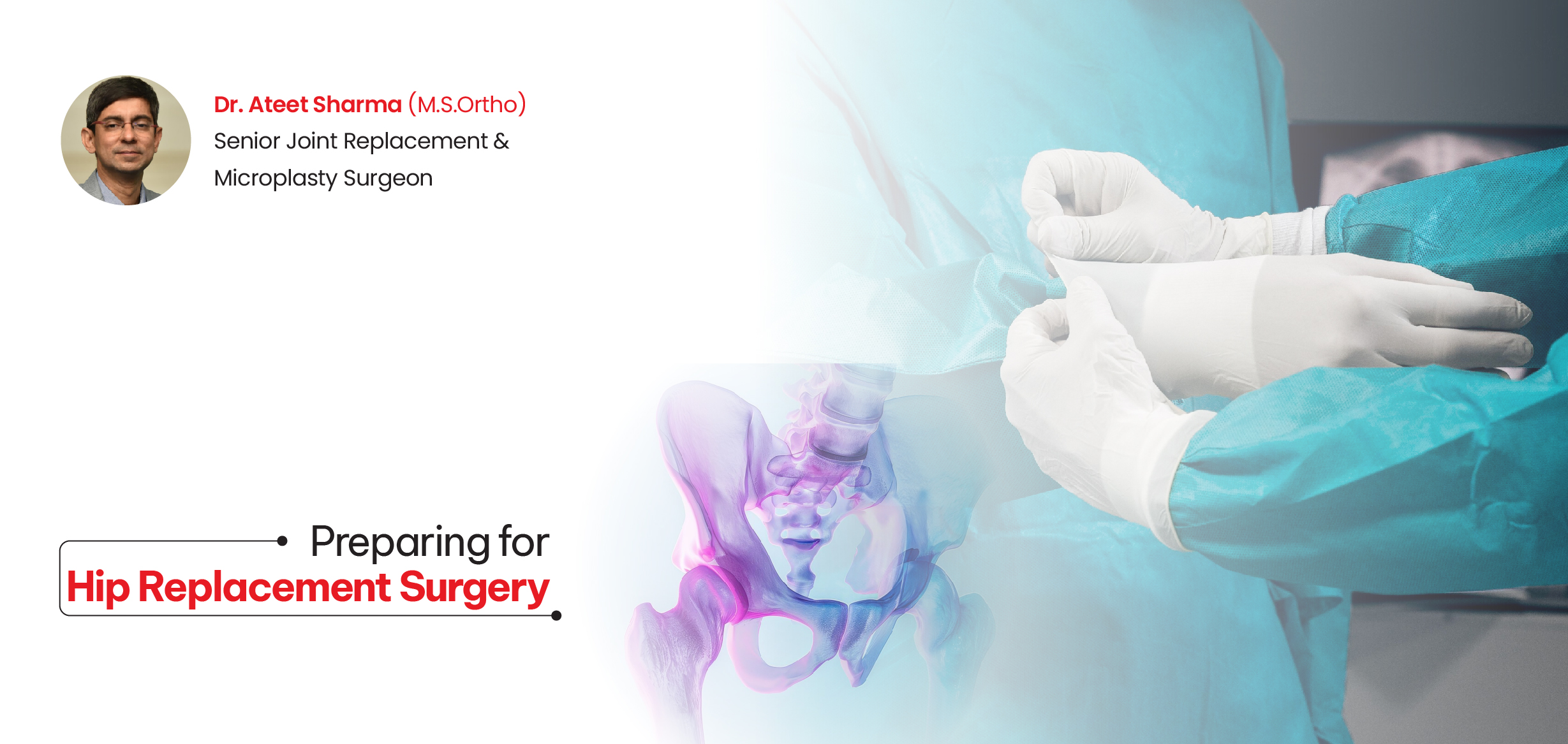
Hip Replacement Surgery is a procedure that helps individuals suffering from severe pain related to hip and stiffness. The pain may occur due to arthritis, injuries, or any other condition that damages the hip joint.
As the name suggests, it is surgery that involves replacement. Thus, the surgery involves removing the damaged parts of the hip and replacing them with new ones. The new parts are artificial parts made up of metal, ceramic, or plastic. This process helps in eliminating pain to a certain level. This blog, by an expert Hip Replacement Surgeon in Ahmedabad, Dr. Ateet Sharma, will help you understand Preparation for Hip Replacement Surgery.

The pre-operative stage is where you are analysed to check whether you are ready for the surgery. There are certain conditions that you might fulfill to become eligible for surgery. These tests help in addressing any previous uncertainties.
There are six main tests that you may come across before going through Hip Replacement Surgery :
Not all the tests are compulsory for the patients. Which test is essential and which has to be gone through is prescribed by the doctor.
Before going through the surgery, you will have a brief talk with the surgeon. It is when you should talk about any queries related to the surgery or any other medical condition that might affect the surgery procedure- traditional or anterior hip replacement.
Make sure that you inform your doctor about any food allergies you have to avoid any complications during the anaesthesia and recovery phases.
You should disclose conditions like diabetes, hypertension, or asthma, as it might affect the surgery.
Make sure that you provide the complete list of medications to the surgeon. It is important to maintain transparency because some medicines might need to be adjusted before the surgery.
Also, if you have gone through any previous surgery, disclose the same.
In any surgery, blood loss is a normal part. Thus, preparing in advance for this can minimise the need for external blood transfusions.
Ways you can prepare in advance :
You should maintain a healthy weight before the surgery to reduce the risk of uncertainties or complications.
Some steps that you must follow to maintain your weight
When you go for a short consultation, your doctor will advise you about some steps that you should keep in mind before the surgery :
Avoid any medication that can increase the risk of bleeding, such as blood thinners. Do all the steps suggested by your surgeon without their advice do not just take any steps.
The reason why alcohol should be avoided is because it can lead to a condition like blood clotting and hydration, which may increase the risk and complication rate while the surgery is going on.
You will need to arrange for someone who can help you get home after the surgery and also stay with you in the initial period. It will provide you with emotional and physical support. Furthermore, you will also need someone to help you with your daily routine and provide support as you begin your rehabilitation.
When you return home after the surgery, at first, you might face a bit of discomfort, and you will also need to make adjustments according to your requirements.
Some of the adjustments to be done at home are as follows :
Preparing yourself for your hip replacement surgery involves multiple steps. One step that links to every preparation is going along with the guidance provided by your surgeon. Dr Ateet Sharma, the best Robotic Orthopedic Surgeon, will guide you to the steps that will make your surgery smooth and comfortable. Schedule a consultation with our expert and get the best assistance!
All The Best For Your Hip Replacement Surgery!
© 2025 Dr.Ateet Sharma All rights reserved. | Manage by Nexus